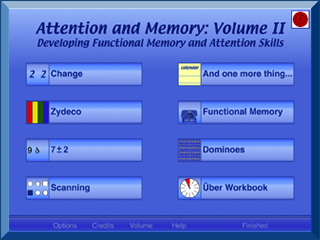
This title develops functional memory and attention skills by directly teaching memory strategies and then applying these memory strategies to daily living. Use this computer-assisted protocol when a linguistic and cognitive processing approach is optimal.
Target Audience: Appropriate for ages 7-Adult for ADD/ADHD, Mild TBI, K–Adult, Frontal lobe syndrome, Executive function disorder, Autism Spectrum.
WN13-3
$5.00
Attention and Memory: Volume II
by LocuTour Multimedia
Attention and Memory: Volume II (Windows)
Information for Professionals:
Systematically target instruction and carryover practice for:
Tasks move from simple sustained attention to alternating and divided attention with response delays and auditory distractors. A clinician's page lets you tailor each exercise to specific memory needs. Skills addressed include:
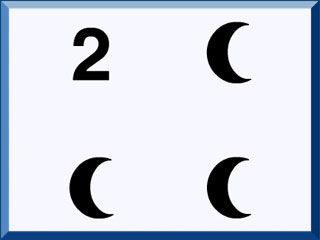
In the Change program you see one stimulus at a time and decide whether you should respond to the stimulus or inhibit a response and wait. If you are supposed to respond, the computer measures how long it takes you to register that stimulus, make a decision, and carry out the decision. This task requires sustained and alternating attention, auditory and/or visual discrimination, and inhibition of impulsivity.
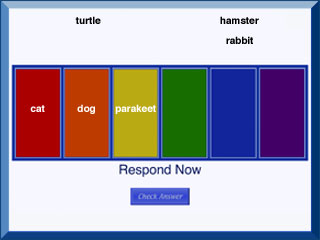
Zydeco is played three ways each session for about four minutes each: Auditory/Visual (sequential tones and colors); Auditory (High/Low) for pitch discrimination; and Functional (word sequences). This game requires auditory discrimination, sound/word sequencing and auditory/visual memory.
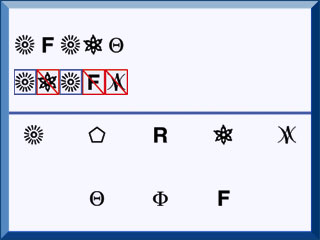
7±2 combines the scanning and rehearsal exercises to learn how to learn a list of items. Start this memory task with common items like letters, numbers and shapes, and progress to abstract shapes. This game requires auditory/visual memory and sequencing skills to improve memory spans.
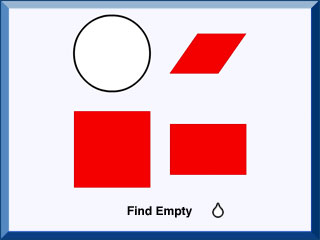
Scanning teaches attention and vigilance. Single out and find the target in a field of increasing visual complexity. This game requires sustained attention, vigilance, discrimination, memory, and inhibition of responses.
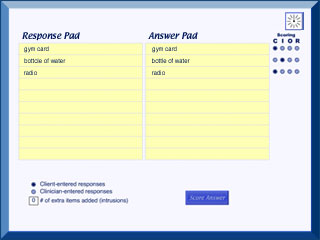
And one more thing... combines all the memory exercises into a real world context where the previously learned strategies can be practiced.
Listen to a list of items to remember. The list is given in a conversational tone, the same way that someone might hear it from a spouse or parent. “Pick up milk from the grocery store. And we need eggs and butter, no we have butter, just eggs.” Target items are added and subtracted from the list.
This game requires attention to auditory-linguistic information, comprehension, memory, self-monitoring, expressive language in the form of dictation or typing and discrimination between salient and unimportant information.
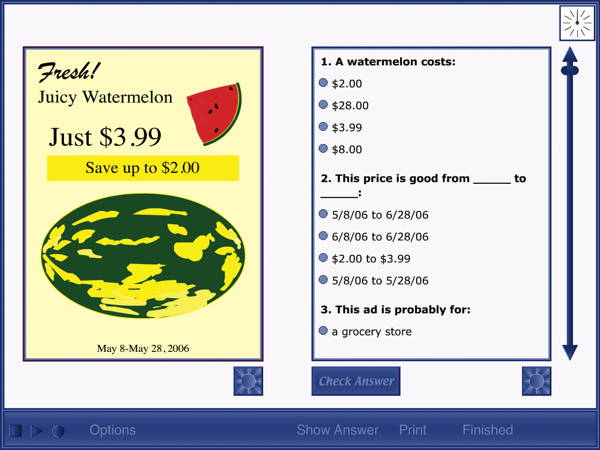
Functional Memory has three activities designed to improve the dual processing tasks of memory and comprehension at the sentence and paragraph levels. The Scanning tasks require reading job ads, coupons, menus, etc., and responding to direct questions concerning details and facts. The Sentences level requires recognition memory and linguistic closure skills. The Paragraphs, level require multiple processing skills in attention, memory and comprehension.
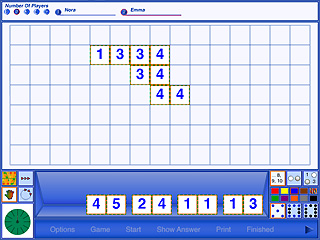
Dominoes requires visual matching or mathematical skill, pre-planning, rotating tiles and aligning tiles. There are several levels of difficulty including solving equations for addition, subtraction, multiplication, and division. This game can be played with the auditory distractors “on” to add a level of complexity of learning to concentrate in noisy backgrounds.
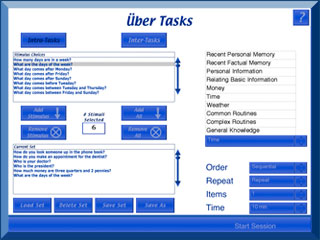
Über Tasks are designed to simulate real-life situations in which you have to hold a task in working memory, shift attention to another task, shift attention back to the original task, and retrieve the information you are holding in working memory. The various tasks tap into recent memory, factual current memory, remote memory, and proscriptive memory, as well as general fund of knowledge.
Über is a German word meaning “over”. We have an image of the Über Tasks as umbrella-like tasks. They can be found interrupting any of the games on the CD.